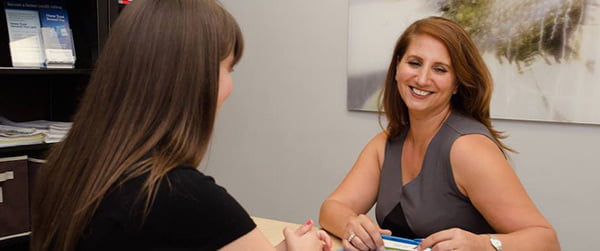Welcome To March

How are you doing? Are you holding up ok? I know I’m consumed with the news and all forms of communication.
I finally had to shut off the news with Covid in 2020; I had enough. It was all-consuming and making my brain hurt; the uncertainty of every day was driving me crazy.
Then with nothing else to concentrate on, the media focus was housing and interest rates. I’m in the industry; I see what’s happening with the housing market; it’s so disheartening. So many Canadians with excellent credit, fantastic income, and reasonable down payment will never know homeownership in the major centers. I wish the media would stop using such inflammatory language. The situation is dire enough without exaggeration or adding fear-provoking content. Off goes the TV again.
Here we are again sitting, watching, waiting to see what happens next in Ukraine. How is this even possible? My heart aches for what is happening. We are so darn blessed in Canada; we have never known what it means to be unsafe in our country.
One of the unexpected moments was how quickly the planet rallied and came together to say no to Russia. To apply sanctions and take corporate financial losses to try and stop Russia from the insanity of Putin reuniting the USSR. I think I understand why everyone can’t go into Ukraine and help, but wouldn’t it make sense to go and actually help with boots on the ground. Clearly, these decisions are above my knowledge base and pay grade.
I am in awe of the pure passion, commitment, and bravery of Volodymyr Zelenskyy; how much courage do the citizens of Ukraine have? I can’t even imagine standing out on the street fighting for my country with a gun I have never held before or making a Molotov cocktail? I can’t even imagine walking miles carrying all I could to flee for the safety of my family.
We are so fortunate in Canada. But, with, fingers crossed, we may never know what this type of insecurity and fear feels like on our soil.
Take the time to be grateful for whatever your struggles are; they are real to you and important, but you are safe in your country with support systems in place and not out on the streets actively fighting for your life and country. Hug your family, friends. If we’ve learned nothing over the past 24 months, we’ve learned what’s important to us—a valuable lesson.
There have been many wars and human rights violations worldwide; I’m glad that we are finally standing up and saying NO. This cannot happen! We must stop the insanity.
Why can’t we be kind? Ok, I’m naïve, I know. But, really, why can’t we all just be kind.
Speaking of kindness, if you are unsure what you can do to help, you can do what I did and donate to the Red Cross. You can also be a kind human, and maybe it will rub off on the next person and so on. It costs nothing to be kind.
Now something to make you smile; The Walter Update
Because everyone needs a smile here are a few pictures of Walter.
On Sunday Walter will turn 1 year old. Can you imagine, it’s been a full year. It’s so hard to believe. HAPPY BIRTHDAY, Walter!!
On March 25th Walter is going for the big snip snip. I am super excited as you can well imagine.
He has not gained much weight, I’m sure he’ll start putting on the pounds this year.
I also want to thank everyone for sharing their pet pictures with me, they are so fun. It gives me such lift some days. Thank you.





Understanding your mortgage 101:
Providing an understanding of the basics of mortgage is very important to me. So here’s a little refresher on the difference in rates and how to pay your mortgage off faster.
Understanding Rates:
An interest rate is the amount of interest charged on a loan, expressed as a percentage. It is based either on the rate the Bank of Canada charges lenders to lend money or on bond yields. Interest rates are generally lower if you borrow money for a short period of time and higher if you borrow the money for a longer period of time. The interest is usually paid as part of your regular mortgage payment along with an amount paid to principal. This is referred to as a “blended principal and interest payment”.
Fixed Rate Mortgage
When you agree to a fixed rate mortgage, your interest rate will not change during the term of your mortgage. There are no surprises as you’ll always know exactly how much your payments will be and how much of your mortgage will be paid off at by the end of your term. At the end of the term, if there is still a balance and time left on your amortization period, the lender will normally offer a renewal with a choice of a new term and the interest rate available at that time.
Variable/Adjustable Rate Mortgage
When you agree to a fluctuating interest rate for the length of the term, then you have a variable rate mortgage. Interest rates fluctuate with the bank’s prime lending rate, and may vary from month to month. When interest rates change, your payment amount remains the same, however, the amount that is applied to the principal will change. For example, if interest rates drop, more of your mortgage payment is applied to the principal balance owing. With some lenders, if the interest rate changes, the payment amount will automatically change to reflect the change in the interest portion of the payment.
With an adjustable-rate mortgage, the payment will automatically adjust when there is a change in the prime interest rate. This will ensure that enough money will be paid toward the principal amount each payment to have the mortgage paid off at the end of the amortization term. Whether your lender refers to it as a variable rate or an adjustable-rate mortgage, it is important for the borrower to understand if the payment will automatically change, or if the payment will remain the same when the interest rate changes. The variable rate (adjustable rate) mortgage is an option for homeowners who believe that interest rates are currently high and will drop.
Meaningful Ways To Pay Off Your Mortgage
There are many benefits to shortening your mortgage amortization period and thereby paying less for the cost of borrowing the money. You can free up money for other things in your life – the education of your children, money for your retirement or an emergency fund.
- Make more payments. Increase the frequency of your payments. Ask your mortgage professional to show you how you’ll save by paying biweekly or weekly, instead of monthly. Paying more frequently can save you hundreds of dollars in annual interest costs.
- Make the largest down payment you can afford. This will substantially reduce the length of time to it takes you to repay the mortgage. If interest rates decrease when it is time to renew your mortgage, consider keeping your payments the same and applying more money to the principal.
- Make prepayments or anniversary payments. Most mortgages will allow you to make payments up to 10, 15 or 20% of the entire mortgage once a year. This money is applied directly to the principal, saving you money in annual interest costs. Consider using your tax refund or annual bonus for this type of payment.
- Make lump sum payments whenever your financial circumstances permit.
- Double your payments whenever possible.
- Increase your payments. Most lenders will allow an increase of the mortgage payments by up to 10, 15 or 20% once every year. The increased amount goes directly toward the payment of the principal amount.
- Choose a shorter length of time to repay your loan. Ask your mortgage professional to show you how selecting a 20-year amortization period instead of a 25-year amortization period will affect your payments and interest costs. Consider choosing 15 years to repay if possible. Your mortgage payments will be higher but you’ll pay substantially less interest over the course of the loan.
- If interest rates have dropped when you renegotiate your next term, keep your mortgage payments the same. More money will go directly to paying down the principal.
Rates
Rates are confusing – yes, there maybe lower rates out there but they may have restrictions? The content of a contract is super important. Use the rates below as a guideline.
Prime is now 2.70%
Prime – 1.10% = 1.60% – high ratio purchase or transfer rate or 65% or greater down payment Prime – 1.00% – 20%-35% down payment purchase Prime – 90 = 1.80% for a refinance/equity take out mortgage
Fixed rates:
5 year – 2.94% – high ratio purchase or transfer rate or 65% or greater down payment
5 year – 3.14% – 20%-35% down payment purchase
5 year – 3.29% – for a refinance/equity take out mortgage
3 year – 2.69%
1 year – 2.19%
10 year – 3.39%
The Bank Of Canada Increase
As expected the Bank of Canada increased the Prime lending rate to 0.50% from 0.25%.
The Bank of Canada announced today that it has raised the overnight rate by .25% to .50% to help curb a worsening inflation picture owing to global supply chain bottlenecks, labour shortages and rising energy costs. Canada’s surging inflation rate moved to a 30-year high of 5.1% recently, driven by high gas prices, soaring housing and automobile costs, and rising food prices – this is well above the Bank of Canada’s target rate of 2% that it had hoped to maintain.
The Bank of Canada owns approximately 42% of Canada’s sovereign debt and has also signaled it will start to shrink its balance sheet by allowing maturing bonds to roll off without reinvesting the funds. This is called quantitative tightening.
Expect more rate hikes from the Bank of Canada throughout 2022. Recall that just over three years ago, in October of 2018, the overnight rate was 1.75%. The next rate-setting day is April 13, 2022.
What does this mean for you?
If you are using a variable rate or adjustable rate mortgage to pay your mortgage down more efficiently, you will see a slight increase in your mortgage payment within the next month. Your lender will send you a notification by email or snail mail to update you. But, you can do the rough math, see below.
REMINDER – Math
Remember an adjustable rate mortgage means, your mortgage payment will increase or decrease with the BoC overnight lending rate.
It is important to note that .25 = $12.10 on $100,000.00. Meaning an increase or decrease will change your payment by $12.10 on each $100,000.00. For example, a $300,000.00 mortgage will see a change in the monthly payment of $36.30 with each .25% change of the Bank of Canada. The BoC meets six times a year. You may lock into a fixed rate term at any time during the mortgage term at no cost to you.
It will be at what the available remaining term rate or the posted rate at the time of conversion depending on the lender.
Call me if you are concerned and would like to discuss your variable rate mortgage. I’m here to help.
